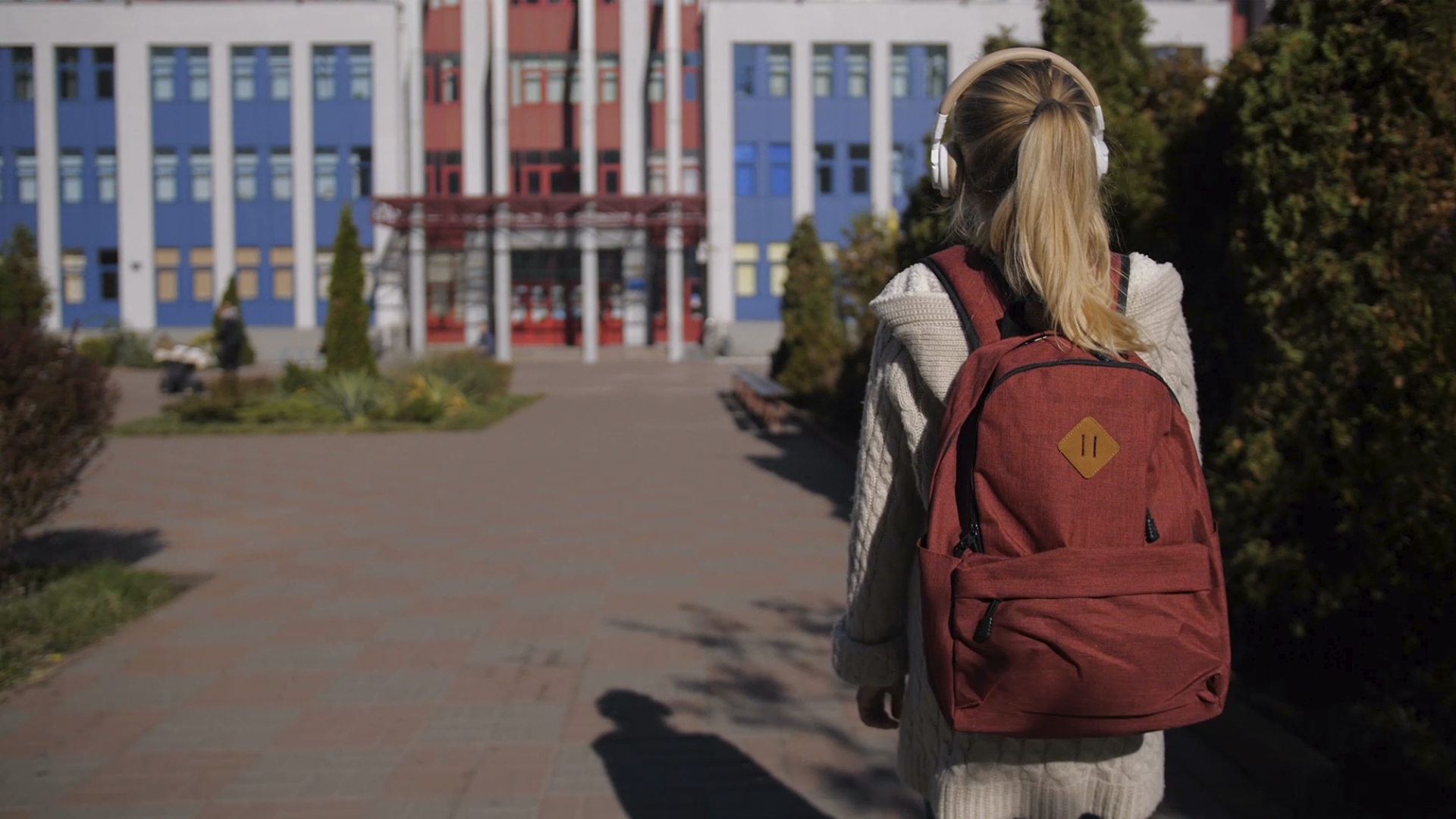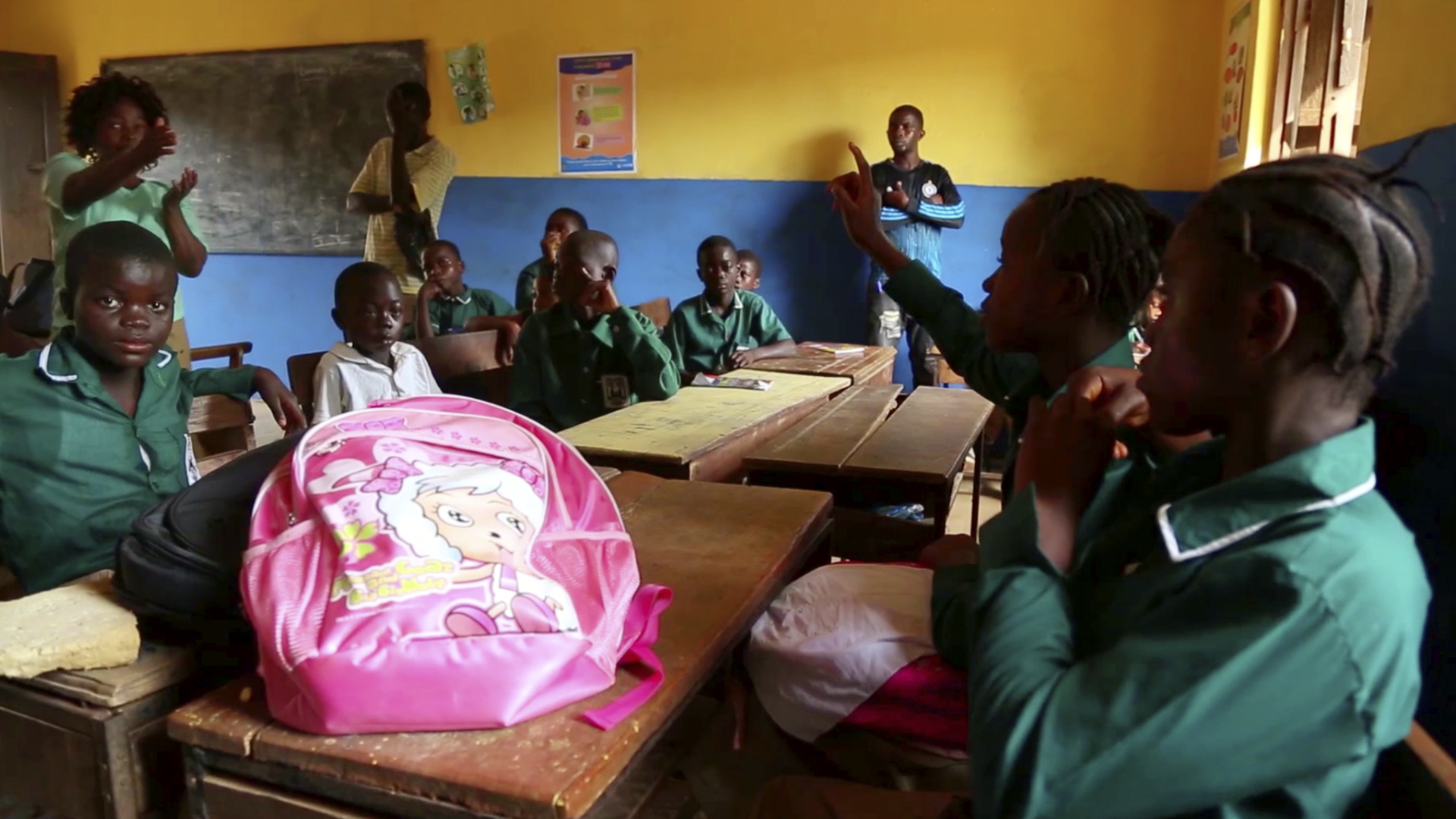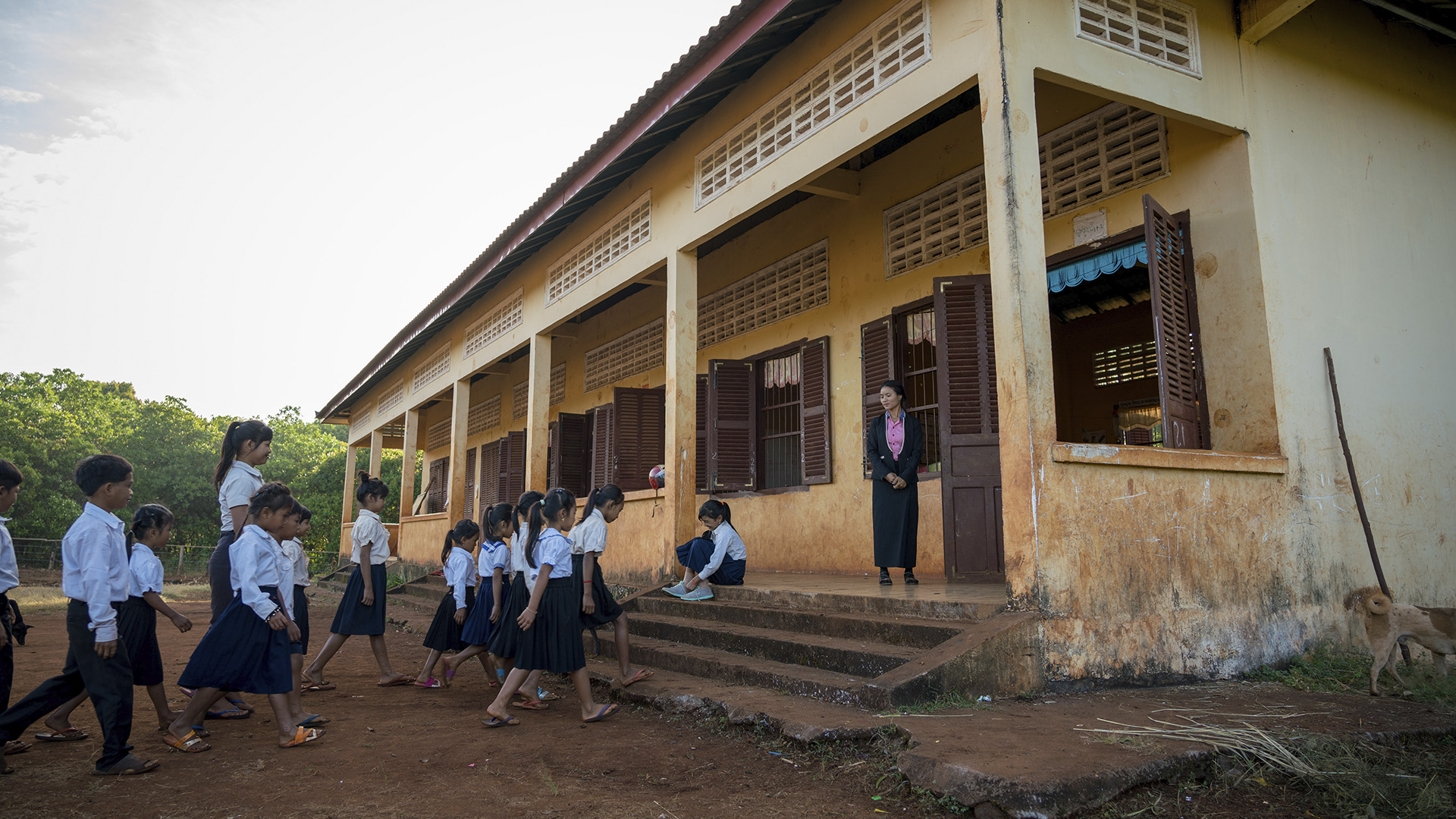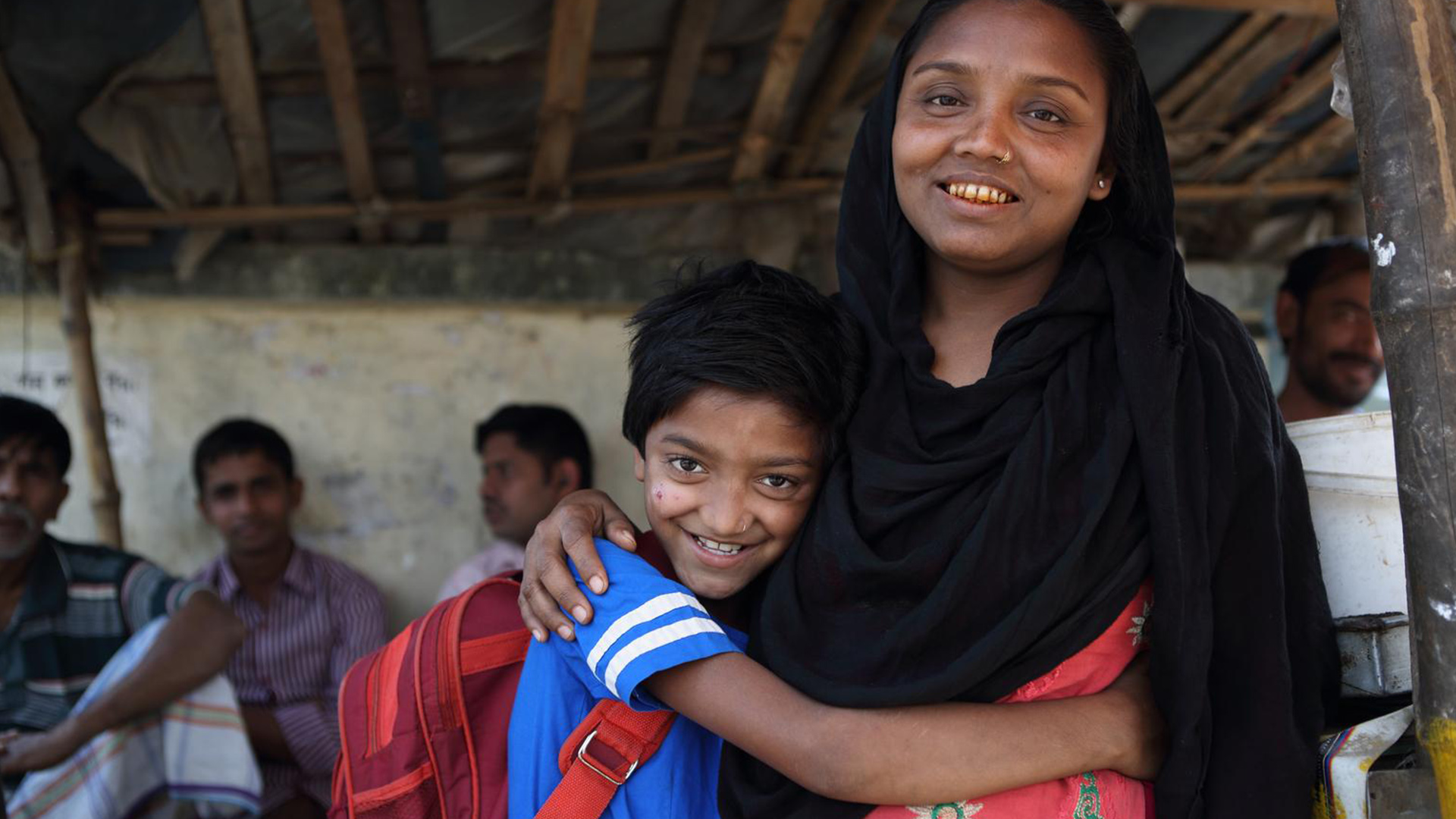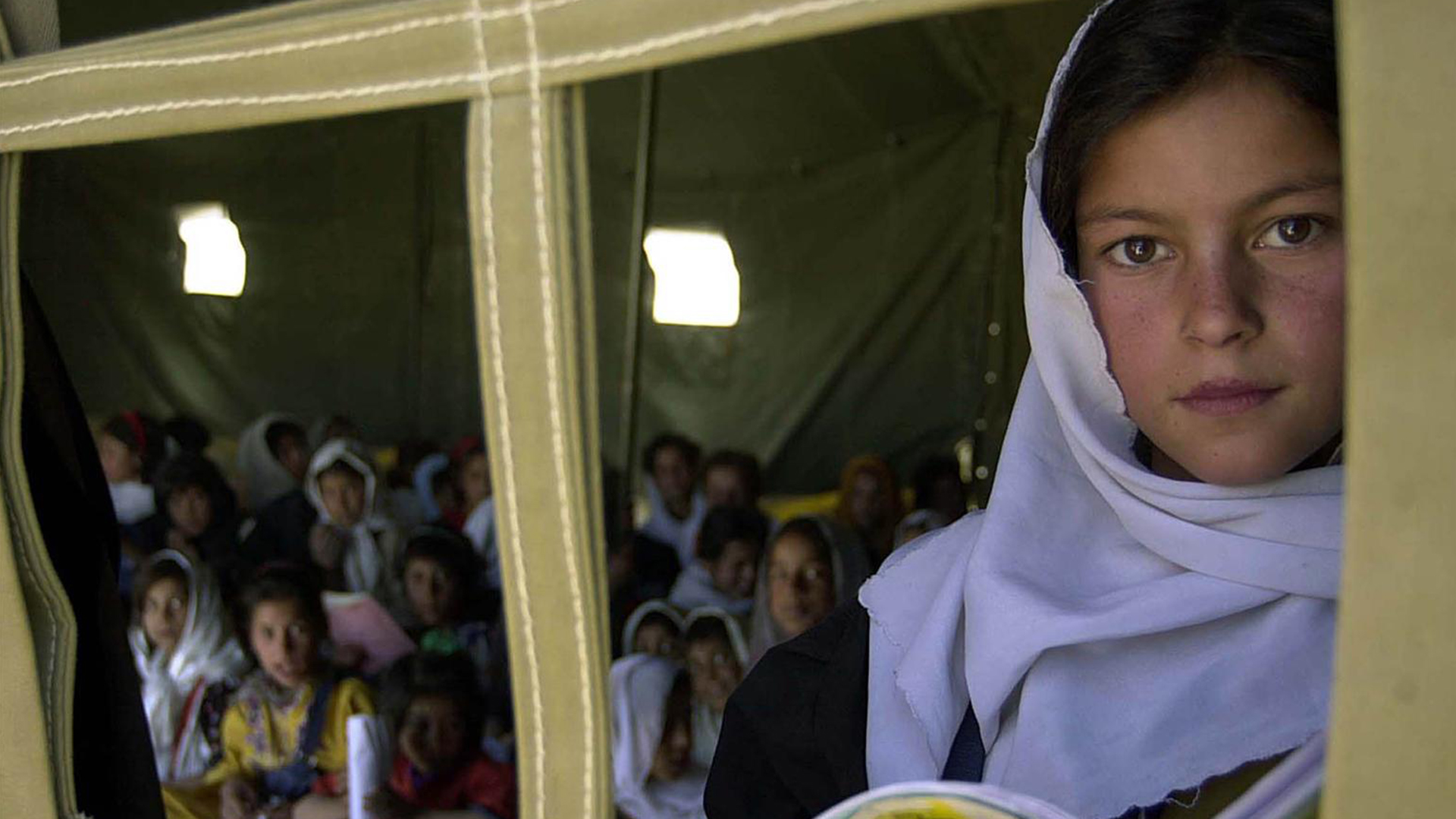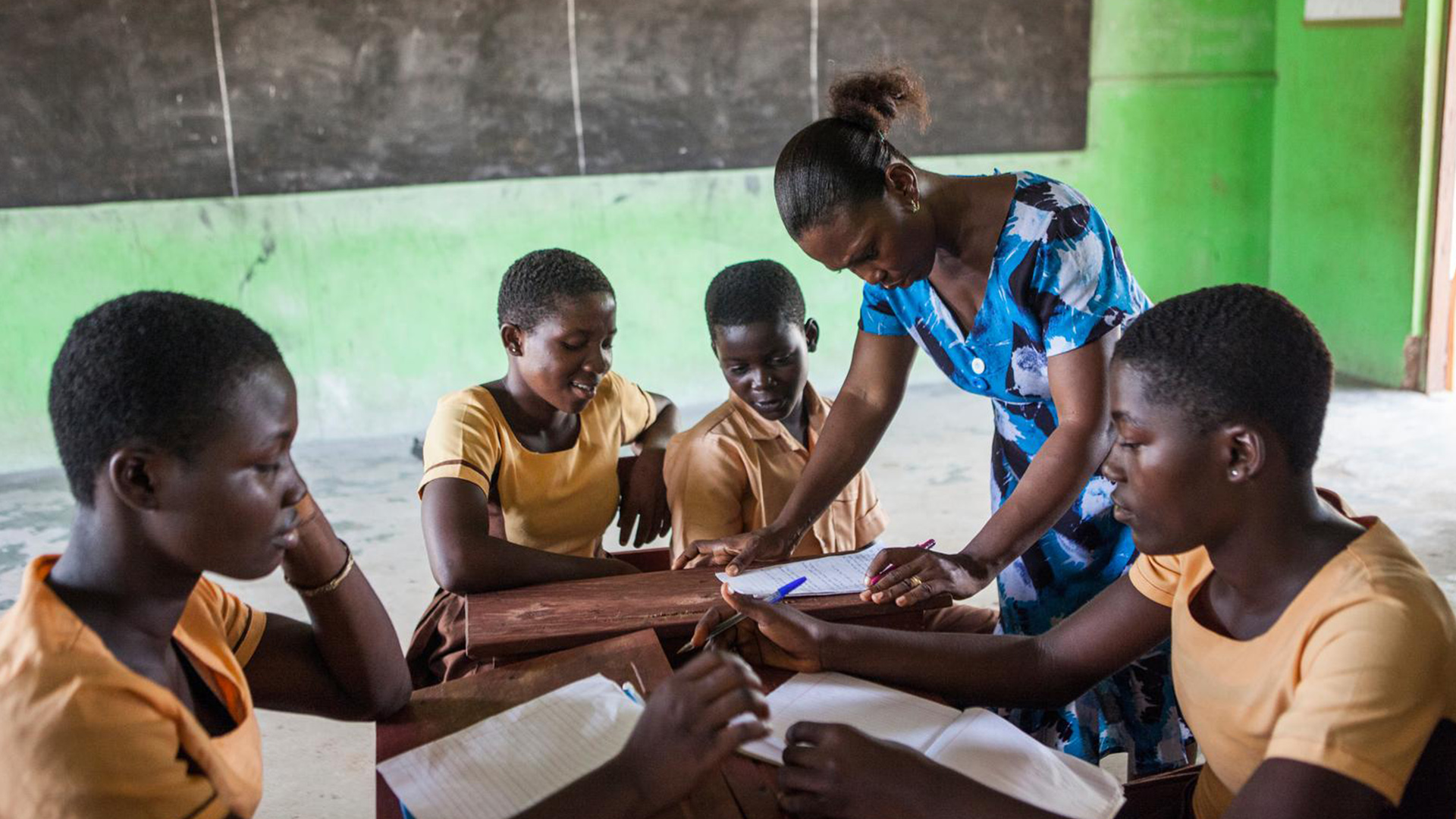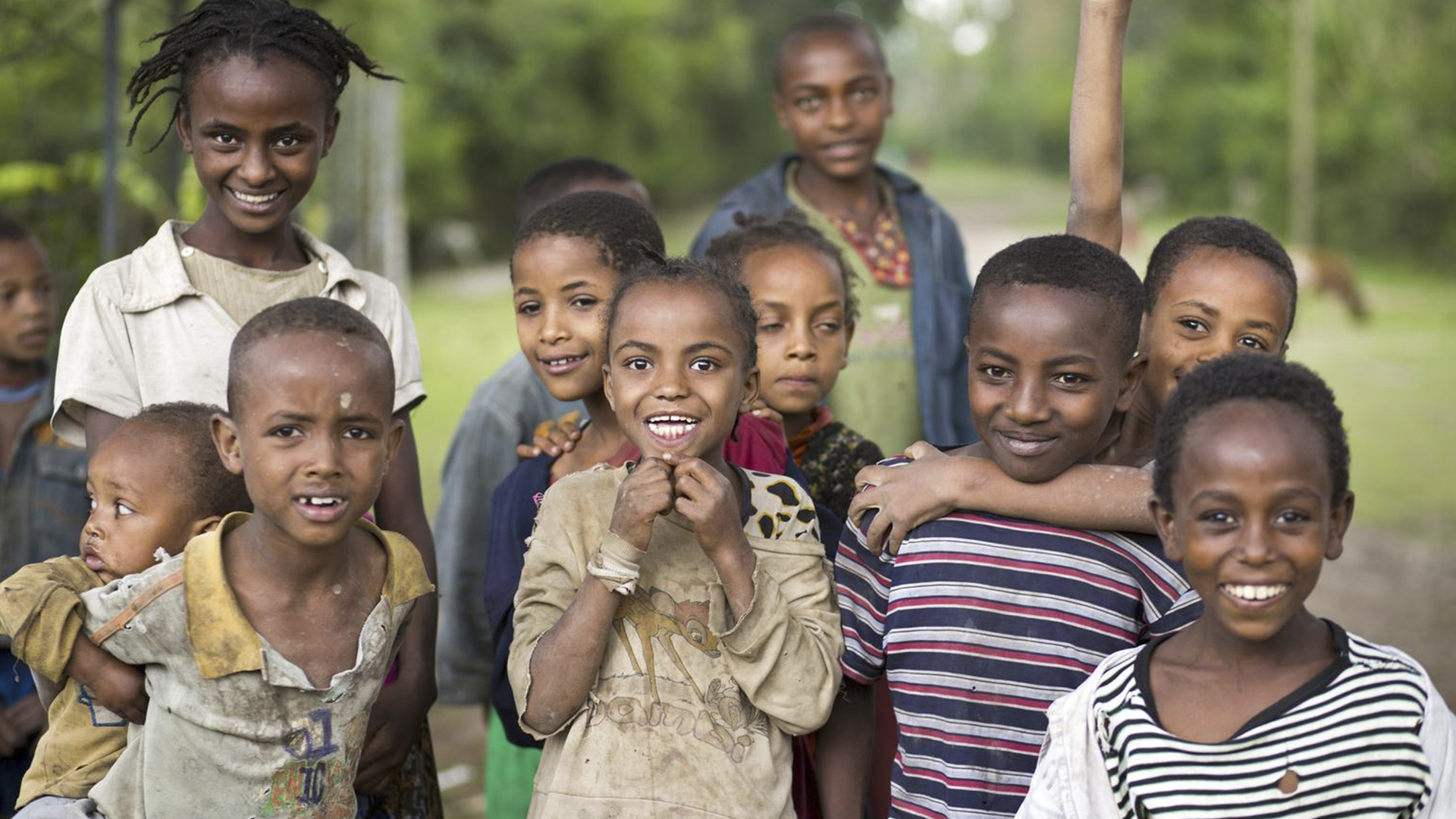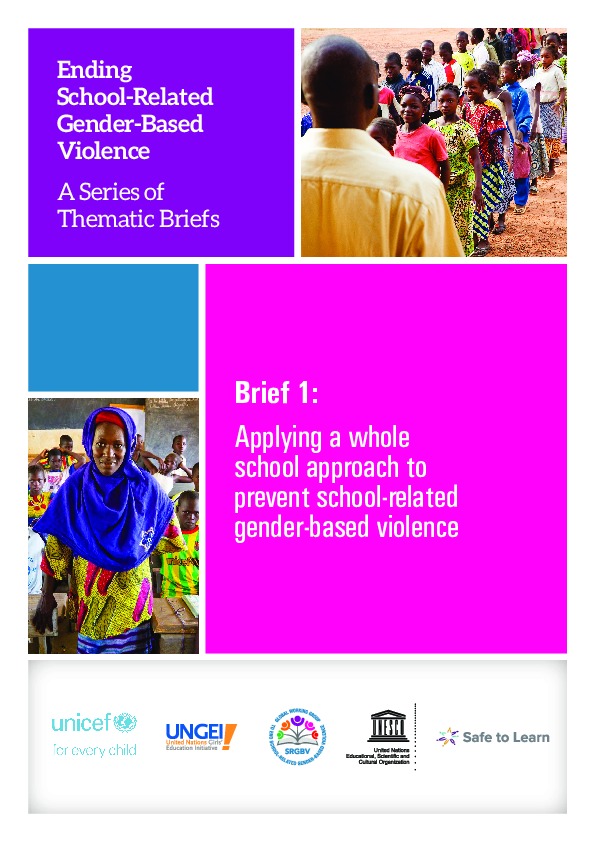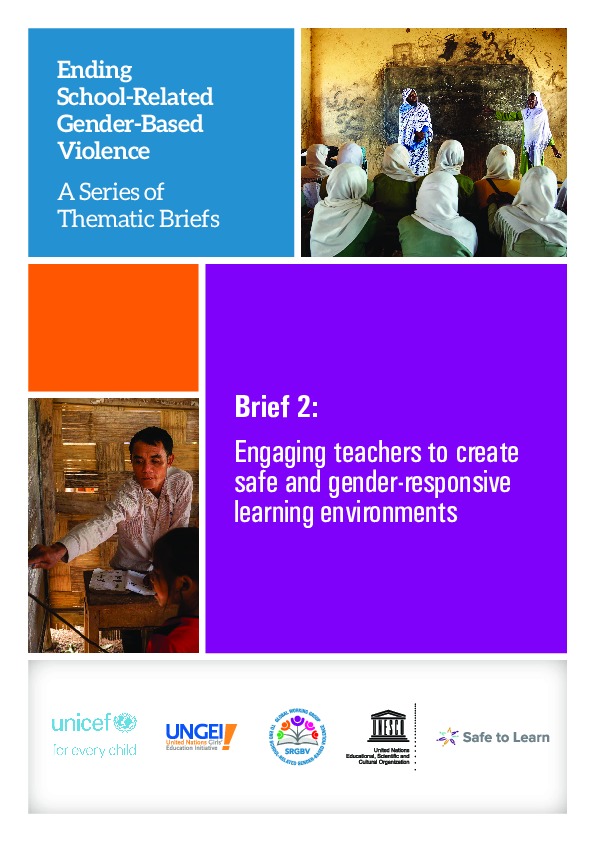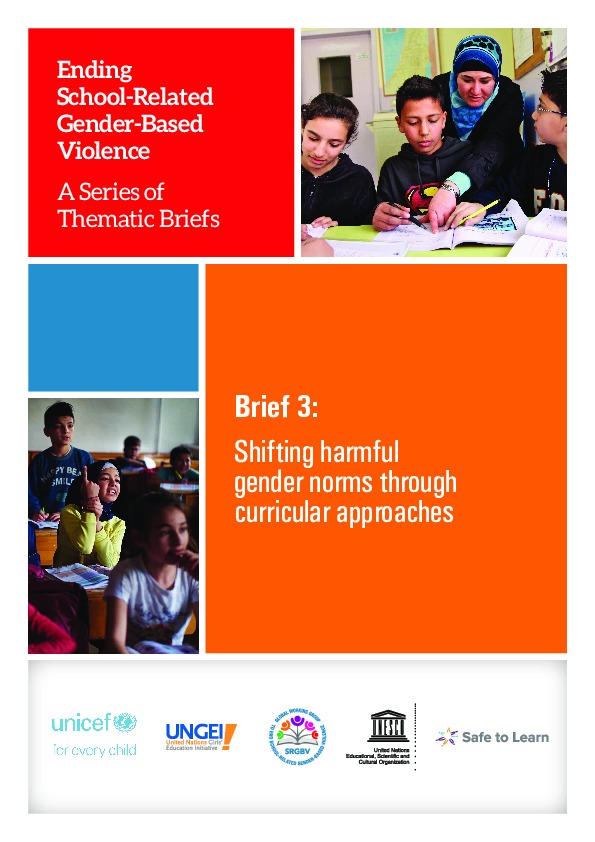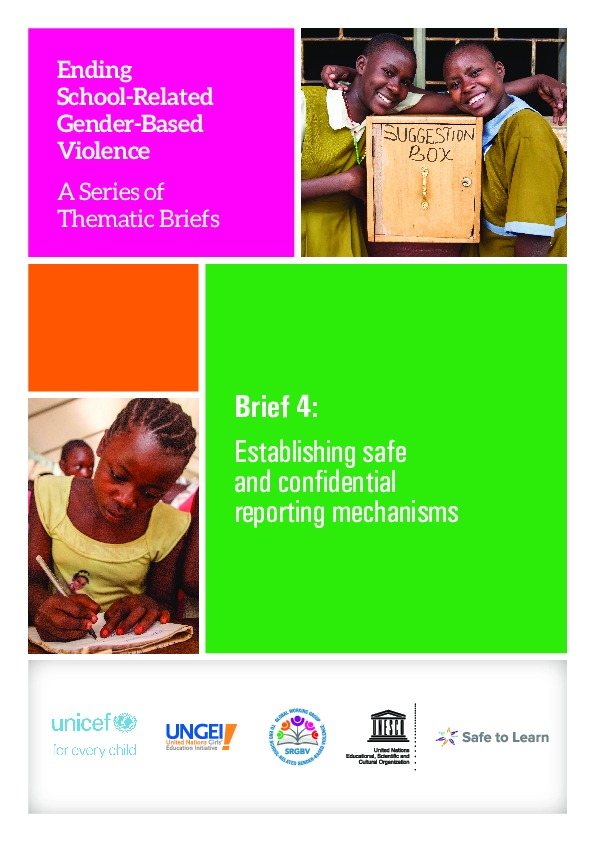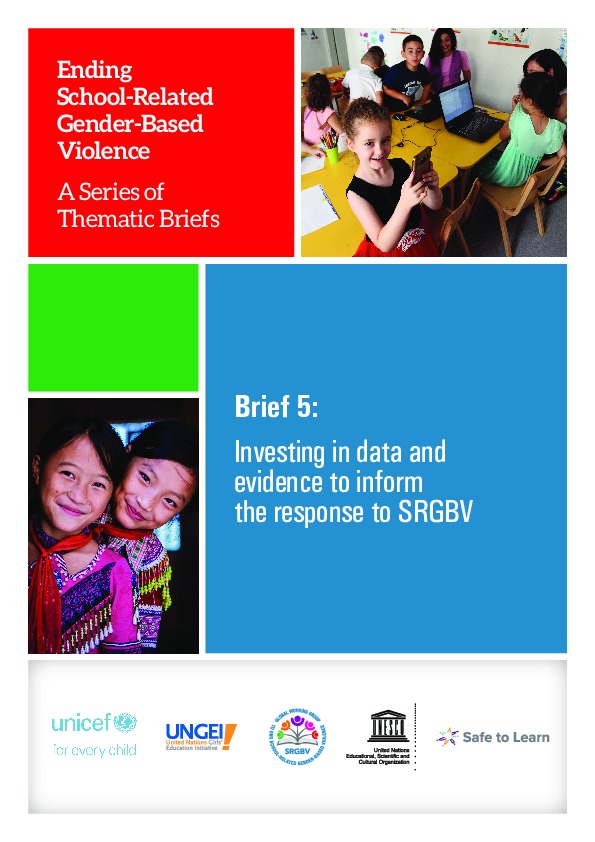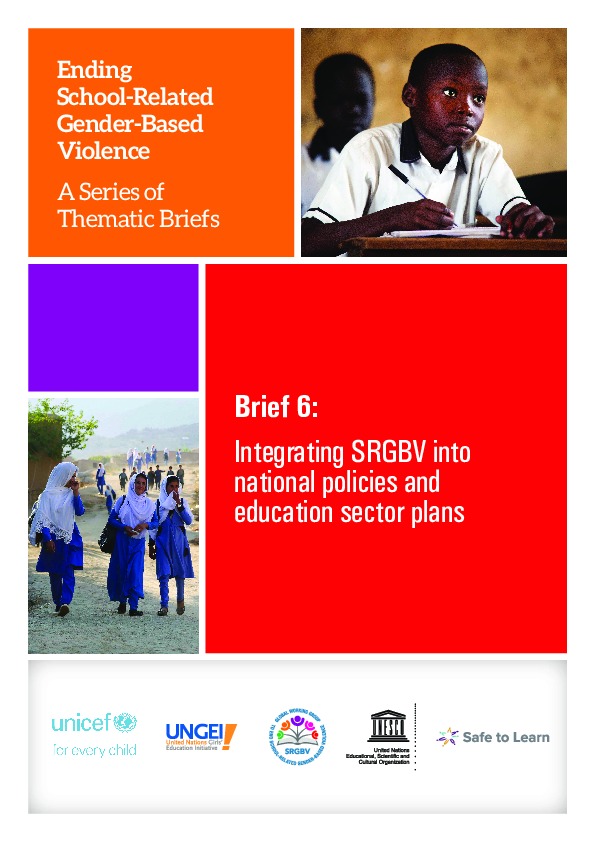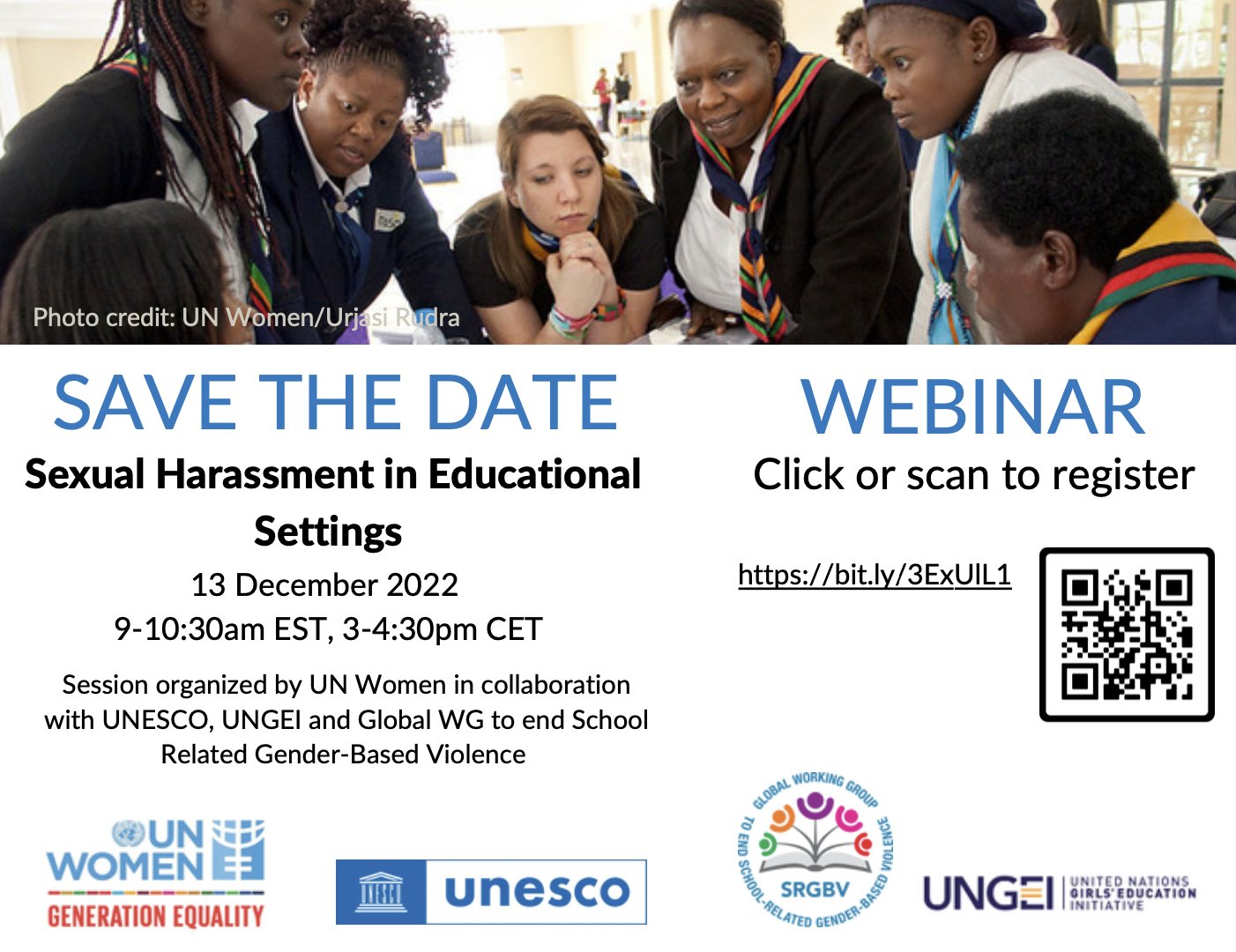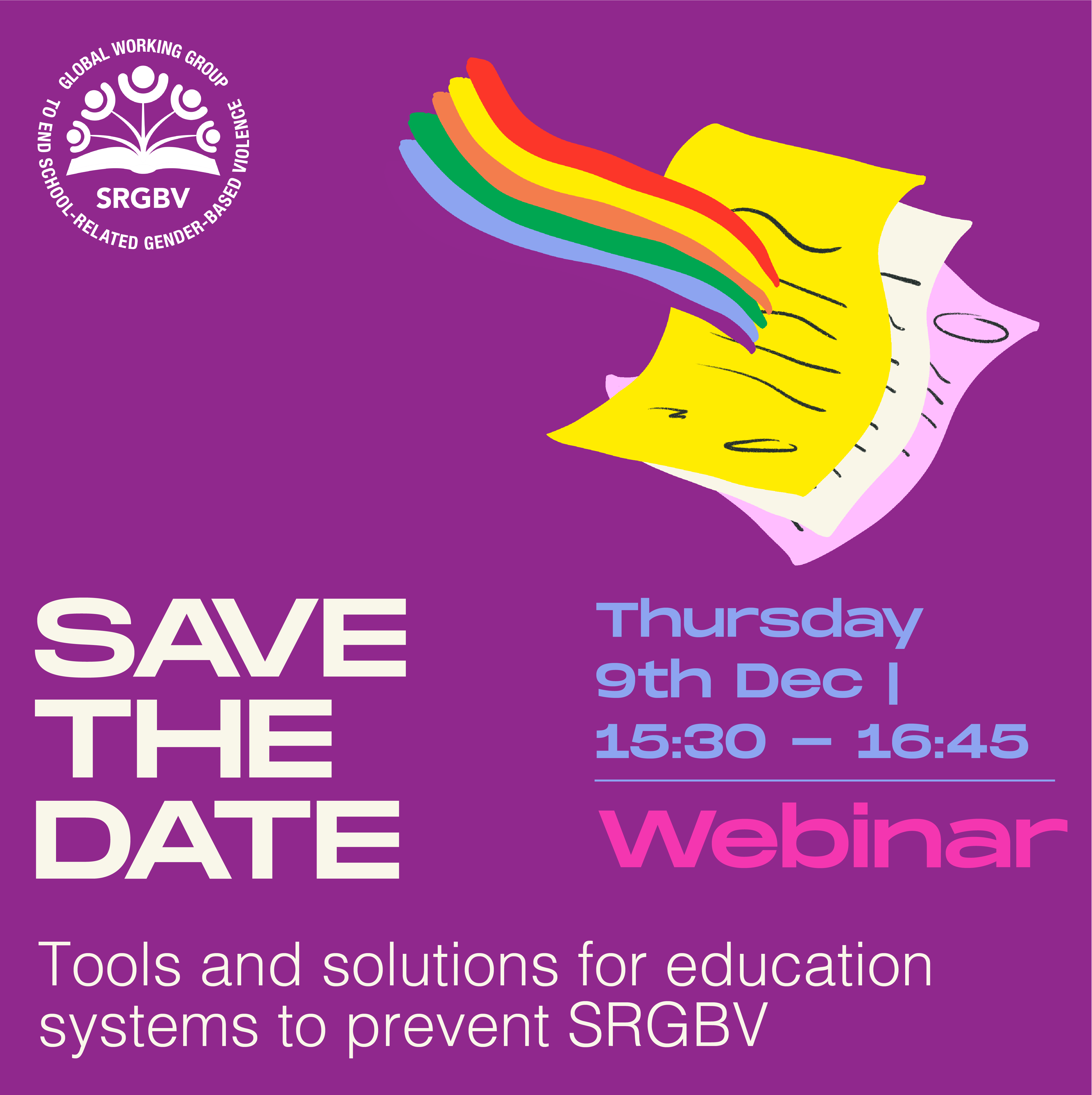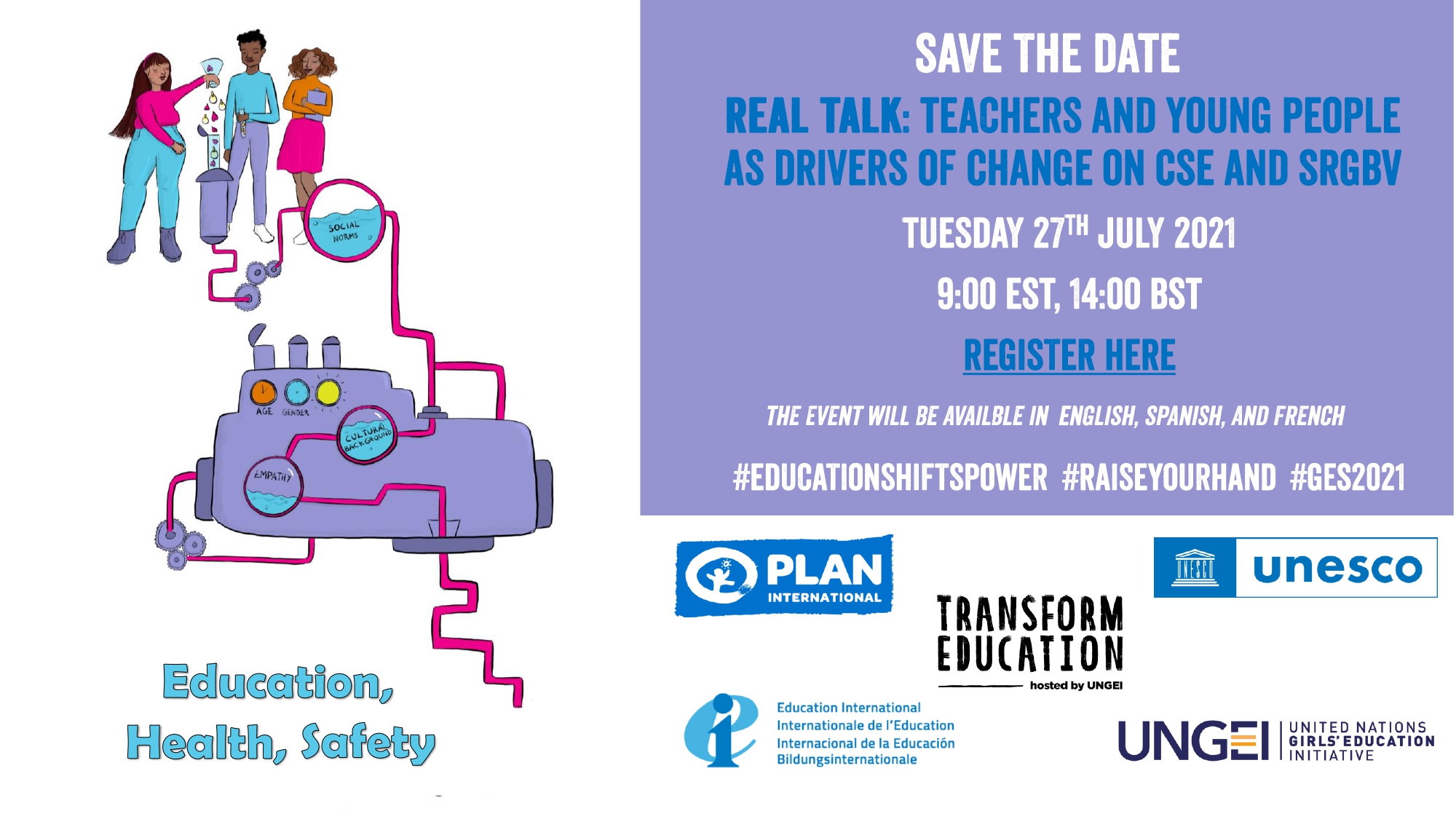Ending Gender-Based Violence in Schools
Working together to make schools safe spaces
School-related gender-based violence
A major barrier to gender equality in education
School-related gender-based violence (SRGBV) devastates the lives of millions globally. For students, it affects their ability to get to and from school, to learn effectively while in school, and to remain there long enough to reap the benefits. Girls are particularly vulnerable to SRGBV, the consequences of which can jeopardise health, lead to unwanted pregnancy, and keep whole families entrapped in the cycle of poverty. As co-convener of the Global Working Group to End SRGBV, UNGEI has long been at the forefront of efforts to eradicate this violation of human rights.
Join our community

Frequently Asked Questions: School-Related Gender-Based Violence
School-Related Gender-Based Violence (SRGBV) affects children worldwide. Based on global estimates, around one in three students reports experiencing physical violence at or around school in the previous month. There are similar prevalence rates for bullying and psychological violence. Learn more about SRGBV through these Frequently Asked Questions.

School-Related Gender Based Violence: Case Studies From Mozambique, Sierra Leone And Zimbabwe
The case studies from Mozambique, Sierra Leone and Zimbabwe featured in this brief show how catalytic funding can be instrumental to address gender-based violence in and around schools in a short period of time. All interventions have applied global standards and tools prescribed by UNGEI and partners.

Preventing school-related gender-based violence (SRGBV)
A training course
Take this training course on how to prevent and respond to school-related gender-based violence (SRGBV). This course offers materials for facilitators to provide online and in-person training.
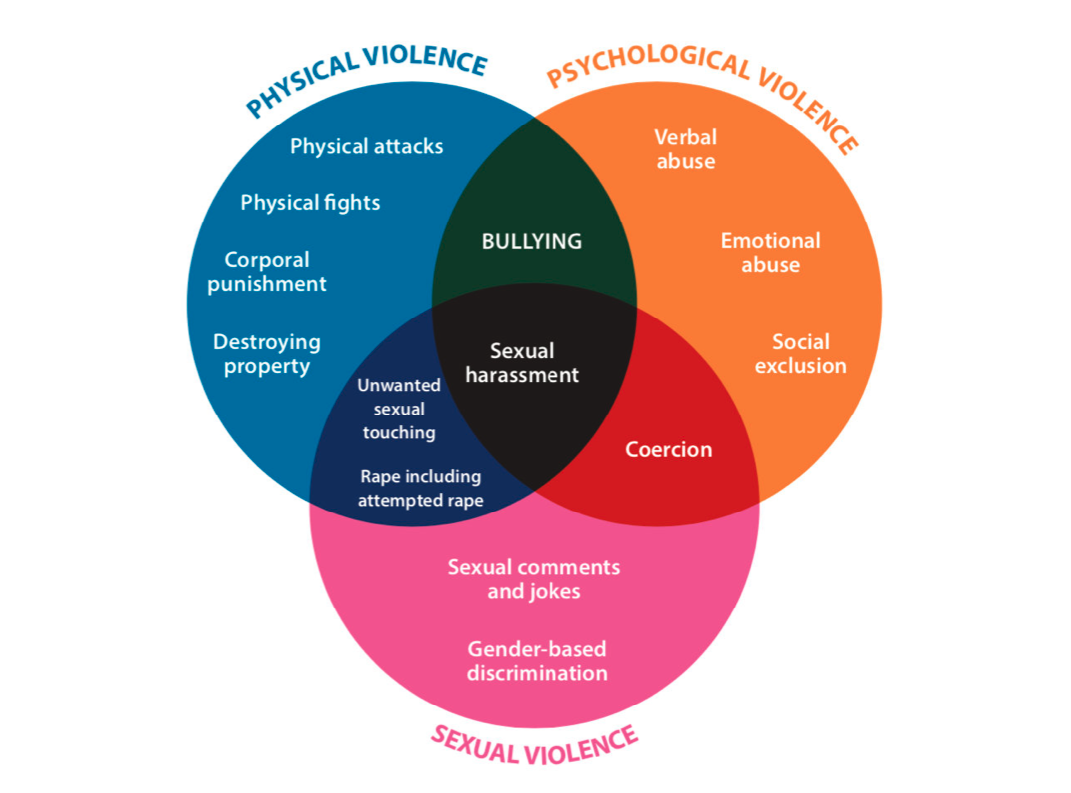
The gender dimension of school violence
Globally, minimum estimates indicate that over 115 million children and adolescents experience SRGBV in the form of physical, emotional and/or sexual violence every year. Rooted in gender norms and unequal power relations, SRGBV negatively impacts both the perpetrators and those subjected to it. It is a human rights issue and an education issue: a violation of human rights and a major barrier to learning.
The Global Working Group to End SRGBV
Established in 2014 in response to the need for a coordinated response, the Global Working Group to End SRGBV comprises a network of over 50 organizations from civil society, academia, the UN and more committed to working collaboratively to tackle the root causes and drivers of gender-based violence in and around schools. Co-convened by UNGEI and UNESCO, the Working Group facilitates learning, knowledge exchange, collective advocacy and evidence-based approaches to further a shared agenda. Task teams are organized around core areas of work:
Advocates Call to #EndSRGBV
Teachers, schools, families, communities, policy-makers and young people all have essential roles to play in preventing and responding to school-related gender-based violence (SRGBV). During the Asia Pacific Learning Symposium to End
School-Related Gender-Based Violence hosted by UNGEI and UNESCO, 25-27 April 2023, SRGBV prevention advocates from Asia-Pacific and beyond share their diverse, yet complementary perspectives on why efforts to #EndSRGBV and ensure that all education settings are #SafeToLearn require that all actors work together.
Minimum standards to prevent and respond to gender-based violence in and around schools have been developed and are now being piloted in two countries in sub-Saharan Africa.
Research is being carried out on the prevalence of SRGBV, its impact on those subjected to it and the effectiveness of approaches and interventions to tackle it.
Knowledge exchange and learning around SRGBV is facilitated across the Working Group through meetings and regional workshops.
Through policy advocacy and global campaigns, UNGEI partners with Working Group members to raise awareness of SRGBV and champion specific actions to address it.
Global standards
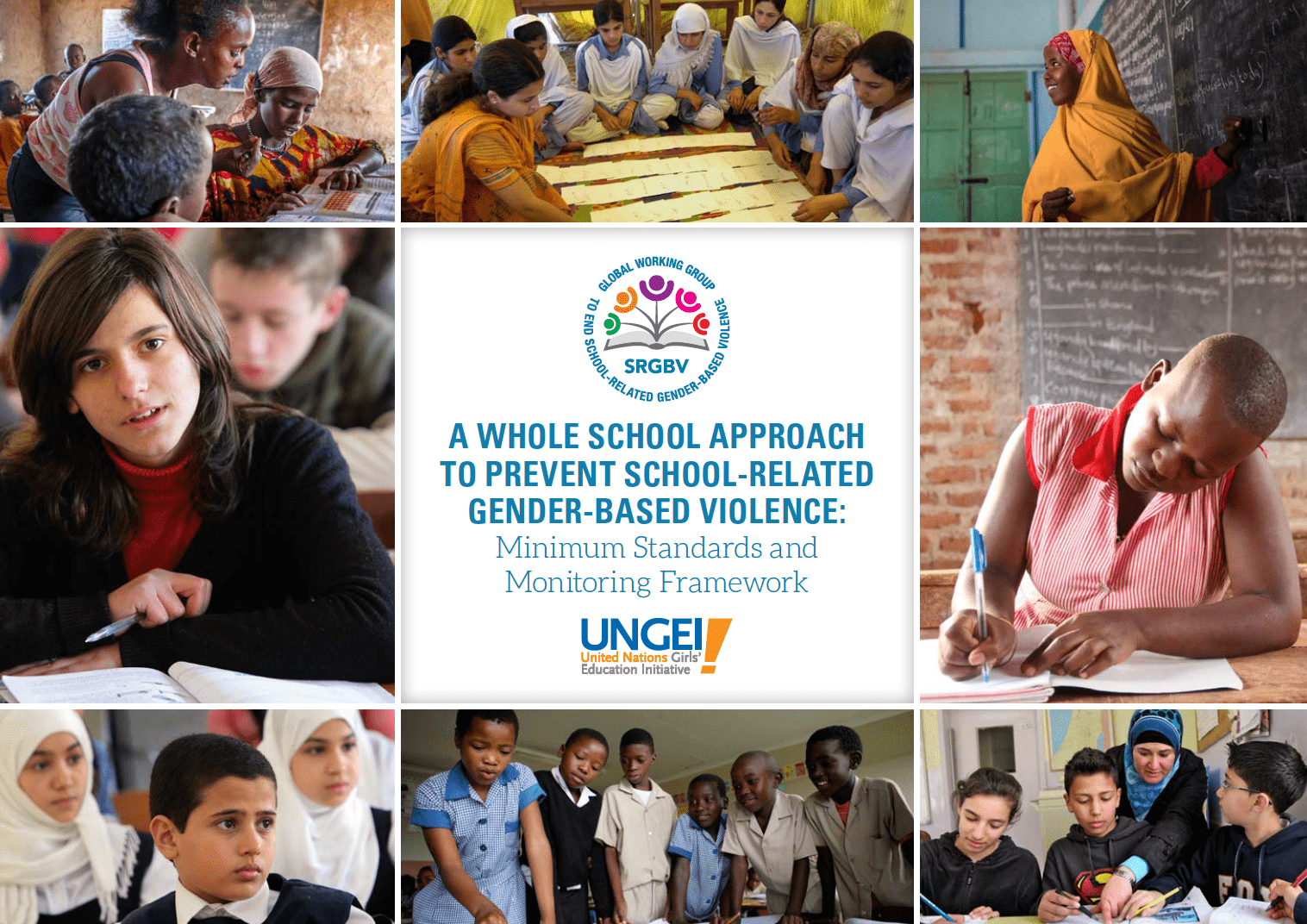
A Whole School Approach to Prevent SRGBV
Minimum standards and monitoring framework
This guide provides a framework to guide policy makers and practitioners in designing school violence prevention programmes and strengthening response actions. The prevention model is based on eight evidence-based standards and is accompanied by a monitoring approach with proposed indicators at school, district and national levels. The goal is to enable implementation strategies to be adapted and monitored in order to improve data collection and accountability around incidents of SRGBV.
Knowledge exchange
Sharing evidence and insights to end SRGBV
The sharing of evidence and learnings on best practice is key to strengthening efforts to eradicate gender-based violence in schools. Through the Working Group, UNGEI plays an instrumental role in facilitating this by convening members representing civil society, multilateral organizations, ministries of education, academic institutions and more. Together, they bring a range of experience and expertise, which is presented, consolidated and disseminated through learning materials, webinars and workshops.
Ending SRGBV
Advocacy
Standing together to #EndSRGBV
Taking action against gender-based violence in and around schools starts with breaking the silence. Together with members of the Working Group, UNGEI has been leading the call to action by raising awareness, speaking out about the issues and championing specific actions to address them. Through the annual 16 Days of Activism Against Gender-Based Violence campaign and ongoing advocacy efforts, young people, educators and activists across the world are standing together to #EndSRGBV. Explore our campaigns below.
Research
Building evidence to end SRGBV
Through the Working Group UNGEI commissions and promotes new research to better understand SRGBV as well as identifying effective approaches to prevent and respond to it. The emerging findings inform every aspect of our work from policy advocacy to campaigns to help drive evidence-based solutions to eradicate SRGBV. To explore the full range of tools and learning materials drawn from research and produced by Working Group members visit our SRGBV Resource Centre.

